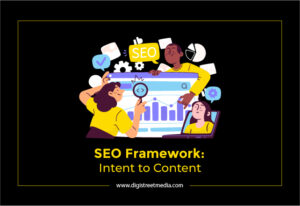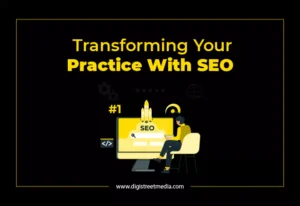What You Need to Know
Summary: AI can automate a lot of the nitty-gritty SEO tasks, like website audits and content tweaks. But don’t ditch your human skills just yet. You’ll still need them for things like crafting killer content, building genuine links, and planning your overall strategy. The best approach? Use AI to boost your human efforts, not replace them.
Search engine optimization (SEO) has long been the pillar of digital marketing. As technology changes with advancements in search engines, so does optimization. SEO has traditionally formed the basis of organic growth but is now swiftly changing with artificial intelligence (AI). AI SEO brings in the element of automation, predictive data, and informed insights that never existed before.
Understanding Traditional SEO
Traditional SEO refers to the time-tested strategies that marketers have used to optimize websites for search engines.
It primarily focuses on:
- Keyword Research & Optimization: Finding high-ranking keywords and applying them to content.
- On-Page SEO: Page element optimization such as title tags, meta descriptions, headers, and URL structures.
- Off-Page SEO: AI SEO discovers backlink opportunities and does outreach automatically to make the process faster.
- Technical SEO: Increasing the performance of sites using speed improvement, mobile-readiness, and structured data.
- Content Creation & Marketing: Creating great content that fulfills search intent and is engaging to users.
- Manual Data Analysis: Applying analytics tools to gauge performance and improve strategies.
Understanding AI SEO
AI SEO employs artificial intelligence, machine learning, and automation to optimize and automate processes. Major features of AI SEO are:
- Automated Keyword Research: Artificially intelligent software analyzes search patterns and trends and suggests optimal keywords.
- Content Generation & Optimization: AI-driven products like GPT-based writing assistants generate content aligned with search intent and readability guidelines.
- Predictive Analytics: AI can forecast trends and suggest proactive steps.
- Automated Technical SEO Audits: Intelligent spiders crawl websites for technical errors and suggest resolutions in real-time.
- Voice Search & NLP Optimization: AI understands natural language processing (NLP) and optimizes content for voice search.
- Algorithm Adaptation: AI monitors algorithm changes and adjusts strategies in response without human intervention.
Key Differences Between AI SEO & Traditional SEO
Data Processing & Analysis
- Human interpretation of data like click-throughs and bounces is what historical SEO is founded upon.
- AI SEO automatically performs data analysis with real-time insights and actionable suggestions.
Content Creation & Optimization
- Keyword–optimized, engagement-optimized, and human–written content is what classic SEO requires.
- AI SEO utilizes machine learning to produce, optimize, and customize content according to search engine algorithms and user intention.
Keyword Research
- Manual keyword research using tools like Google Keyword Planner is what classic SEO is all about.
- AI SEO employs predictive analytics to reveal hidden opportunities and dynamically optimize keyword strategies.
Backlink Strategy
- Classic SEO involves manual outreach for link-building.
- AI SEO discovers backlink opportunities and automates outreach to accelerate the process.
Algorithm Adaptation
- Conventional SEO professionals adapt strategies based on ranking fluctuations observed.
- AI SEO detects algorithm changes in real time and adapts strategies based on that.
User Experience Optimization
- Conventional SEO optimizes user experience through manual A/B testing.
- AI SEO uses machine learning to analyze the behavior of users and dynamically adapt content.
The Future of SEO: AI-Driven Optimization
As digital marketing continues to be transformed by AI, SEO will be increasingly data-driven, efficient, and personalized.
Here’s what the future looks like:
- Hyper-Personalization
AI SEO will make search engines smarter about user intent, providing much more personalized search results. Sites will dynamically alter content according to user preference, boosting engagement and conversion.
- Voice & Visual Search Supremacy
With the increasing popularity of voice assistants and visual recognition technology, AI SEO will target content based on voice search and visual search, rendering classical keyword tactics obsolete.
- Evolution of AI-Generated Content
While AI-generated content is already making waves, its capabilities will improve further. Future AI will create content indistinguishable from human writing, streamlining content marketing efforts.
- Automated SEO Management
SEO platforms powered by AI will automatically perform most optimization steps, minimizing the need for human touch. From content optimization to technical audits, AI will take care of SEO strategies in real-time.
- Ethical & Quality Considerations
With AI content and automation as the standard, ensuring proper usage of AI ethically and high-quality content will be key. Google and other search engines will update algorithms to favor high-quality, authentic content over automated AI-spam.
Conclusion
While old-school SEO is still applicable, AI SEO is unmistakably defining the future of online marketing. With the use of AI-powered automation, predictive analytics, and deep data insights, companies can improve their SEO practices more effectively. Marketers who adopt AI SEO will have a competitive advantage, with their websites ranking higher and easily keeping pace with search engine developments. The future of SEO is AI-based—those who evolve will succeed in the new digital world.







